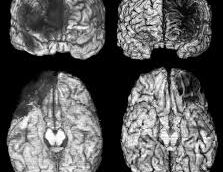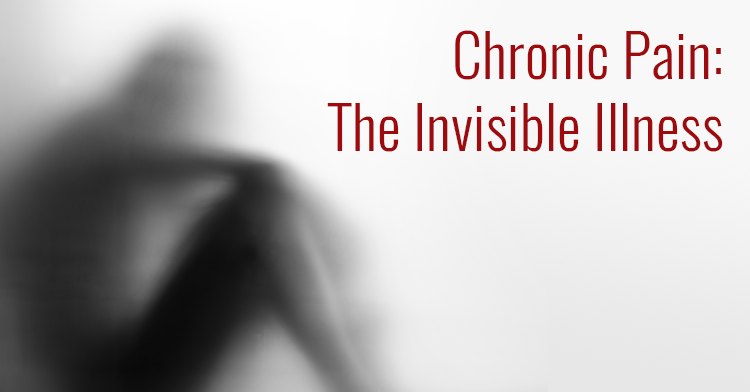Most people hear the term emotionally strong and assume that it means the ability to ignore your emotions or not feel them. But that’s dead wrong… Emotional strength isn’t about getting rid of difficult feelings — it means you know how to respond to them in a healthy way. For example: Of course, it’s hard work to cultivate a healthier relationship with your emotions — one that allows you to be resilient and strong in the face of painful feelings instead of fragile. But it is possible. And the most effective way…
Read MoreHow I Cured 30 Years of Knee Pain (in 30 Days) With One Simple Exercise
“Ah, it’s ok. You go ahead, I’ll catch up.” This was me, for the majority of my life. Chronic knee pain stopped me from enjoying many fun aspects of life. Hiking, team sports, and as I got older, even stairs would spark a symphony of cracks and pops. Luckily, this story has a happy ending. Here’s how I bulletproofed my knees, hips, and ankles, for free, with one simple exercise practiced a few times per week. You don’t have bad knees. Today, chronic knee pain is a way of life for 25% of…
Read MoreBrain activity predicts chronic pain
At a Glance This X-ray shows two recording devices implanted in the shoulders and recording electrodes placed in the brain. Dr. Prasad Shirvalkar, UCSF Chronic pain—pain that lasts for more than three months—is a major cause of disability. Some types of chronic pain are difficult to treat and lead to considerable suffering. Pain is often measured by patients’ subjective reports. A lack of objective measures for chronic pain hinders the development of better ways to diagnose and treat it. Previous work to develop objective pain measures has looked at brain activity…
Read More‘The invisible illness no one’s talking about
GEMMA FLOOD WAS in chronic pain for fifteen years before she found out why. Over the years several doctors had tried and failed to establish what was causing the debilitating pain that had derailed her life.After countless misdiagnoses, a doctor in Gorey finally discovered the truth: she had fibromyalgia syndrome.Gemma recalls hearing the news six years ago.“I hadn’t a clue what it was, I had never heard of it in my life … I couldn’t even spell it. I Googled it, that was very frightening. I was in shock for…
Read MoreWhat Are ‘Invisible Illnesses’ and How To Find Out If You Have One
Parade.com has an extensive editorial partnership with Cleveland Clinic, consistently named as one of the nation’s best hospitals in U.S. News & World Report’s annual “America’s Best Hospitals” survey. Click here to learn more about our health reporting policies. About 60 percent of adults have a chronic disease, according to the Centers for Disease Control and Prevention. But, not all illnesses can be measured or come with visible signs or symptoms. In those cases, the condition might be considered an invisible illness. An invisible illness is an umbrella term for any medical condition…
Read MoreFibromyalgia & Long-Term Disability Benefits
BY MATT LALANDE in Long-Term Disability Fibromyalgia is a difficult disorder to diagnose, which can be incredibly frustrating for individuals who are living in pain, cannot work and who need to apply for long-term disability benefits. It’s often called the “invisible disease” and for doctors, it’s often referred to as a condition that is very difficult to diagnose. Living with fibromyalgia is not easy and can be very limiting for individuals who suffer from this condition. According to scientific researchers, fibromyalgia is more commonly diagnosed in women than men (up to 80-90%),…
Read MoreFibromyalgia Diagnosis Associated with Impaired Foot Function
A fibromyalgia diagnosis has been shown to affect foot function, which in turn led to significant pain, according to a study published in Foot and Ankle Surgery.1 Factors of foot impairment included age, lack of physical activity, body mass index (BMI), a concomitant rheumatoid arthritis diagnosis, and employment status. Foot function is an important factor in assessing quality of life. Previous research has shown greater rigidity in the feet, leading to decreased mobility, can provoke a significant deterioration in the hallux valgus and apophysis of the calcaneus. Further, tarsal tunnel syndrome is frequently noted…
Read MoreLady Gaga says this is what having fibromyalgia feels like: ‘It’s every day waking up not knowing how you’re going to feel’
Five years ago, Lady Gaga revealed that she had fibromyalgia, a chronic illness so intense that it led to “severe pain” and tour cancellations during her music career. Fibromyalgia is a long-lasting disorder that “causes pain and tenderness throughout the body,” according to the National Institute of Arthritis and Musculoskeletal and Skin Diseases. But while its effects can have severe impacts on those with the disease, some people don’t view it as an actual medical condition — because it cannot currently be diagnosed through medical testing. People are often diagnosed with fibromyalgia because it’s the…
Read MoreFibromyalgia in Men: Important Facts About an Overlooked and Misunderstood Condition
It’s often said that more than 90 percent of people with fibromyalgia are women, but more recent studies suggest fibro in men is much more common than previously thought. When Zane K. suspected he had fibromyalgia, he mentioned it to his doctor. The response: “He laughed,” Zane recalled in a Facebook post, “and said it was a women’s syndrome.” He had to find a new doctor, endure months of tests, and get a recommendation to see a rheumatologist before he was finally diagnosed with the condition. CreakyJoints member Carl H.…
Read MoreFibromyalgia causes structural brain changes
Reviewed by Megan Craig, M.Sc.May 26 2023 Pain-processing regions are particularly affected by changes in brain volume. The good news is that these changes may be reversible. One of the core symptoms experienced by patients with fibromyalgia is chronic pain. A team from the LWL Clinic for Psychosomatic Medicine and Psychotherapy at Ruhr University Bochum, Germany, has investigated the brain changes that are related to the disorder. Using magnetic resonance data, the researchers proved that the areas of the brain involved in the processing and emotional evaluation of pain are altered in patients.…
Read More














